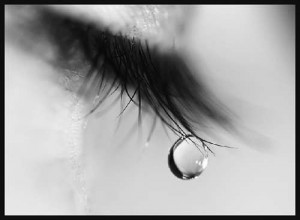 Repressed trauma deeply affects the soul. In the same way the fragrance of ozone saturates an approaching thunderstorm, the painful aftereffects of emotional wounds permeate a woman’s heart, relationships, and life.
Repressed trauma deeply affects the soul. In the same way the fragrance of ozone saturates an approaching thunderstorm, the painful aftereffects of emotional wounds permeate a woman’s heart, relationships, and life.
Emotional pain is a serious wound that must be treated. Experts agree one of the most important things you can do is flush out a wound. If we neglect certain wounds, or cover them without proper cleansing, we develop a weeping wound—a wound which takes much longer to heal. These infected wounds require additional care. At this point the original wound is not the problem. The infection is.
If we’re still struggling with the fallout of a traumatic event, we’re infected. And this infection leaves soul-scars, which exaggerate the original wound and impact the way we live. Just as a wound must heal on the inside first, so our healing begins deep in our souls.
We could learn a valuable lesson from the instinctive behavior of animals: sometimes we have to stop and lick our wounds.
Animals possess an uncanny ability to process traumatic behavior. In his book, Waking the Tiger, Dr. Peter Levine shares how animals instinctively discharge the compressed energy of impending danger.
Dr. Levine explains how animals hold a keen appreciation for the power of release. As might a human, animals run when they are afraid. After surviving a near-death pursuit, animals experience physical tremors—a necessary release of negatively-charged emotions—before returning to normal activity. The animals shake, run, cry out if necessary; whatever it takes to release the incredible amount of compacted energy produced from a life-threatening situation.
If instincts fail and the animal attempts to return to daily life in a heightened sense of arousal, he becomes unable to survive.
“There has to be a deeply innate mechanism that’s there to bring us back from the brink of insanity, the brink of fear and experience of threat to balance,” Dr. Levine explains. “A threatened human (or animal) must discharge all the energy mobilized to negotiate that threat . . . this residual energy does not simply go away. (Peter Levine, Waking The Tiger, North Atlantic Books, 1997, P 20.)
Excerpt from Write Where It Hurts: Writing as a Healing Tool.
![]() Jo Ann Fore is an author, speaker, and writing coach. She is passionate about making a difference in the lives of other women. Most noted for her authentic vulnerability, Jo Ann captivates her audience with faith-filled messages caramelized with a powerful promise of hope. Visit Jo Ann at www.JoAnnFore.com and www.facebook.com/WriteWhereItHurts.
Jo Ann Fore is an author, speaker, and writing coach. She is passionate about making a difference in the lives of other women. Most noted for her authentic vulnerability, Jo Ann captivates her audience with faith-filled messages caramelized with a powerful promise of hope. Visit Jo Ann at www.JoAnnFore.com and www.facebook.com/WriteWhereItHurts.




